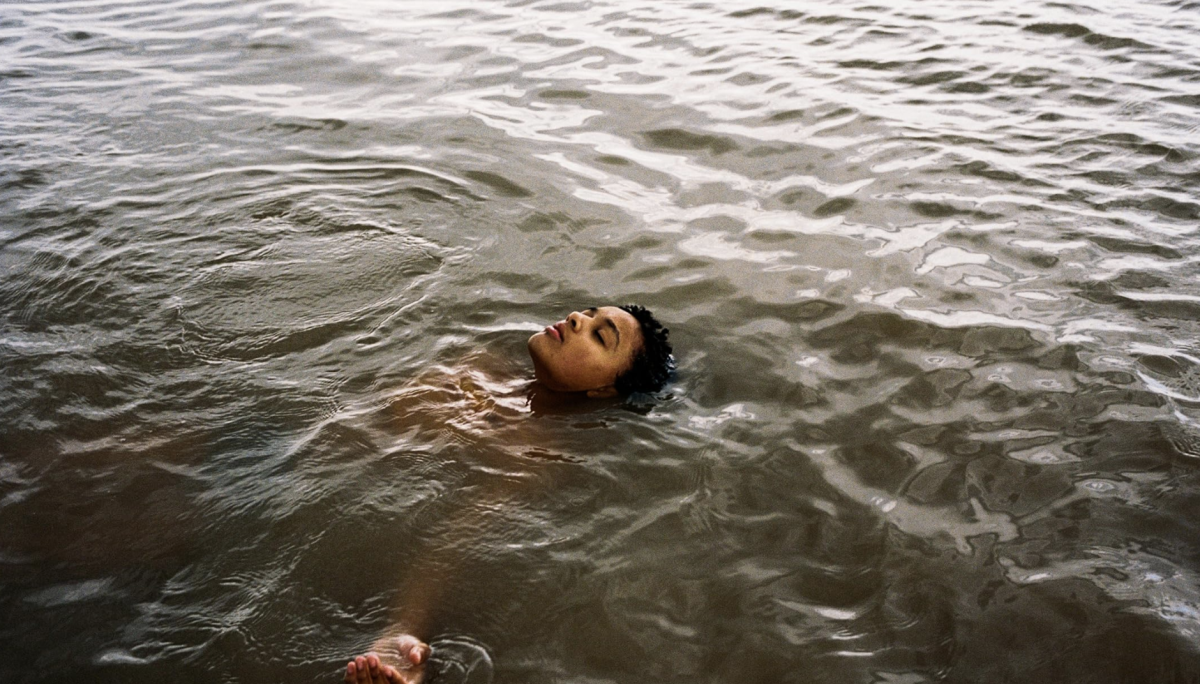
IMDB

If you had an imaginary friend growing up, you likely remember either wishing they were real or truly believing they were. This childhood fantasy meets a grim reality in “Bird,” a coming-of-age tale that follows 12-year-old Bailey (Nykiya Adams), whose harsh circumstances have forced her to grow up too quickly. Her father, a young, erratic drug dealer named Bug (Barry Keoghan), announces his upcoming remarriage to his girlfriend Kayleigh (Frankie Box), whom Bailey dislikes. Bailey’s mother is similarly problematic as she raises Bailey’s three younger siblings under the watchful eye of an abusive boyfriend. Amid the harshness and squalor of her life, Bailey longs for something more.
Her only solace lies in her phone camera, which grants her control over the moments she chooses to capture and acts as a shield against the violence she often faces. These vertical clips are interspersed with the more traditional camerawork of the film, which appears shaky and unrefined, as though handheld. This beautifully creative cinematography allows the audience to experience Bailey’s life through her eyes.
The raw complexity and authentic flaws of the characters are what truly bring depth to this film. Bug is somehow simultaneously negligent and overprotective of his children, and his spontaneity constantly reminds us that he is too young to be a father to two teenagers. This complexity comes across as confusing at first. It is difficult to determine whether he should be liked or loathed, but this ultimately makes him feel very real. Bailey’s older brother Hunter (Jason Buda) fights his own troubled loneliness with violent vigilantism, which leads him down a rocky path. Despite the portrayal of a dysfunctional family, a sense of sincerity and familial love still flourishes and takes hold by the movie’s end.
Bailey’s life is changed when the eccentric titular character Bird (Franz Rogowski) literally waltzes into her life. Whether he is imaginary or real is left ambiguous until a surprising use of magic later in the film clarifies that neither he nor the fantastical elements of the film are mere figments of Bailey’s imagination. As Bailey helps him navigate the scars of his troubled childhood, he returns the favor by bringing her the friendship and whimsy she’s long missed in her harsh upbringing. Bird takes on the role of a guardian angel — eerily endearing in his quiet vigilance, perching atop buildings and protecting Bailey fiercely as she faces the challenges of adolescence in a bleak and unforgiving world. Still, the relationship between Bird and Bailey occasionally comes across as predatorial due to the unlikely nature and closeness of their friendship. Though this was not the intention of the film, it is a difficult perception to dispel.
Bird’s character is moving insofar as he embodies nature’s beauty seeping through even the most industrialized and dilapidated streets, and the ability of a soul that has suffered to recognize and ease loneliness in another. However, “Bird” falters in its use of magical realism. The resolution of one of the central conflicts is entirely dependent on magic, but the film fails to commit wholeheartedly to the fantasy genre prior to this moment. The magic works better when it is ambiguous and likely made up, which captures the childlike use of imagination as an escape. When fantasy becomes fact, it ultimately proves unsuccessful.
After this unexpected use of magic to progress the plot, the story loses some of its coherence. The ending feels anticlimactic compared to the sudden outburst of surrealism. Some plotlines are ultimately left unresolved and themes that were subtly explored, like that of gender through Bailey’s self-expression, end up feeling somewhat underdeveloped.
Keoghan offers a solid supporting performance as Bug, though the Irish accent is at times hard to follow (fortunately, most of the showings seem to have closed captions). Rogowski’s portrayal of Bird perfectly captures his peculiarity while also rendering him an emotionally touching character. Despite Adams’ young age and notable entourage, her performance is truly the stand-out.
The cruelty of Bailey’s world is alleviated not only with the elements of fantasy but also with a sprinkling of silliness throughout the movie, which comes in comical quips and unexpected moments of song. Though she has been forced to take on an adult role, Bailey’s youthful spirit still shines through in her ability to create joy in even the darkest situations.
“Bird” may have blundered by not fully committing to its attempt to incorporate magic, but its message still soars: Regardless of the situation we are in, there is beauty and strength to be found in ourselves. Sometimes, all we need to uncover that strength is a friend, whether that friend be real or imaginary or a bit of both.